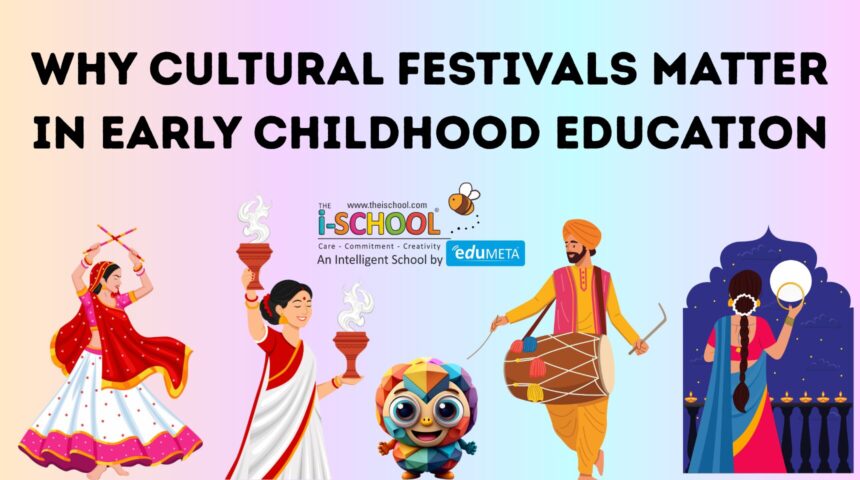Why Cultural Festivals Matter in Early Childhood Education

Childhood is more than just ABCs and 123s; it’s also about shaping values, identity, and a sense of belonging. In early childhood education, every story, activity, and celebration lays a foundation that lasts a lifetime. Among the most powerful tools we have for this? Cultural festivals.
When little learners celebrate festivals like Navratri, Diwali, Christmas, or Eid, they’re not just dressing up or enjoying sweets. They’re stepping into traditions that build empathy, curiosity, and respect for diversity. Let’s explore why cultural festivals play such an important role in preschool education.
1. Building Awareness of Diversity
Festivals introduce children to the idea that the world is made up of many cultures, beliefs, and traditions. When toddlers clap to Garba beats, light diyas, or share sweets, they begin to understand that every culture is unique and worth celebrating. This builds acceptance and curiosity from an early age.
2. Strengthening Emotional Connections
Children love stories—and festivals are full of them! Whether it’s the tale of Goddess Durga’s strength during Navratri or the story of giving during Christmas, these cultural narratives spark imagination while teaching courage, kindness, and hope. Festivals create emotional connections that children carry in their hearts.
3. Encouraging Creativity and Expression
Festivals bring color and energy into the classroom. Crafting lanterns, decorating rangolis, painting diyas, or making masks for a play all of these activities allow children to express themselves freely. Creativity naturally blooms when tied to the excitement of a celebration.
4. Strengthening the School-Home Connection
When schools celebrate festivals, parents often get involved—sending traditional food, teaching cultural songs, or sharing family customs. This collaboration builds a bridge between home and school, creating a sense of community and belonging.
5. Instilling Values and Life Lessons
Festivals are not just rituals they are value systems wrapped in celebration. Through them, children learn gratitude, sharing, patience, teamwork, and the joy of giving. These lessons, taught through fun, stay much longer than any lecture ever could.
6. Creating Joyful Memories
For children, festivals are pure magic. Dressing up, dancing, tasting special foods, and singing songs these joyful moments leave lasting impressions. Positive memories of cultural celebrations make school an exciting place they look forward to every day.
The i-SCHOOL Approach
At THE i-SCHOOL, we believe festivals are classrooms in themselves. We weave traditions into fun, age-appropriate activities – dance, drama, crafts, and storytelling so children experience culture through joy, not obligation. By celebrating together, we prepare children not just for academic success, but for a life enriched with respect, empathy, and global understanding.
Final Thought: Festivals are not just about rituals; they are about relationships, values, and the joy of shared humanity. By celebrating them in early education, we give children the best of both worlds – a strong cultural foundation and an open, inclusive mindset.
